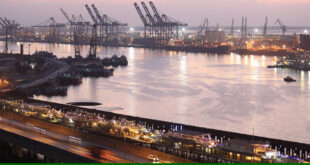Interview with Sayyid Mansoob Hasan, An analyst
PAGE: Tell me something about yourself, please:
Sayyid Mansoob Hasan: I have over 23 years of experience. I have worked with non-banking financial industry at senior positions like CFO, HIA and Director. Since 1995, I am engaged in Public Practice as a Cost & Management Accountant and Management Consultant. My firm MANSOOB & CO. is providing solutions to business problems of the industries of Pakistan especially the industries in SMEs Sector. We have also developed expertise in providing solutions to the Micro Enterprise Sector.
I have been involved in social welfare since my childhood and have been engaged with various local and international organizations including Amnesty International, Rotary Club and Global Peace Mission. I am the Founding President of Circle of Voice Trust that was established by me in 2004. In this Trust we are carrying out different activities like counseling, dispute resolution, running industrial home and education centers.
I have a keen interest in Economics and in order to provide solutions to the business & industry and the society of Pakistan through different platforms I keep myself abreast of the developments taking place in all the segments of the economy. And looking at the past and current status of Pakistan economy I and my team are working in various dimensions to develop solutions to the problems faced by the individuals, families, society in general and the business and industry of Pakistan which will ultimately transform the economy and the society of Pakistan.
We have established think tanks on Economics, Education, Healthcare and Science & Technology. And just recently we have established COVT-Young Leaders Club to provide personal and professional development trainings to the young people of Pakistan. So that our youth is not only guided & trained to save their precious time and their parent’s money but also to develop them to compete internationally.
PAGE: How would you comment on the logistics in Pakistan?
Sayyid Mansoob Hasan: Although Pakistan is located at strategically high value cross-roads of South Asia, Central Asia and the Middle East yet the performance is not satisfactory at all. Pakistan was ranked 71 out 155 countries surveyed by the World Bank. At the Logistics Performance Index Pakistan scored 2.67 in 2014 (2.69 in 2012 and 2.08 in 2010) on a scale of 1-5 with 1 the worst and 5 the best. Pakistan’s performance has gone down as compared to 2012. Whereas, India, keeping in view the common heritage in many senses, scored 2.88 in 2014 (2.87 in 2012 and 2.91 in 2010) despite its bigger size in many terms.
The major contributor towards the low performance was the Pakistan Railway Freight Operations which was seriously compromised politically for diverting the financial gains to some other quarters.
Another factor which continues to contribute towards this low performance is the customs clearing at the shipping ports. Due to corruption of the various stakeholders the customs clearance remains slow and the containers’ dwelling time at the port remains at 5-6 days far below international standards of 3-4 days. This not only creates disruptions in the manufacturing and trading activities it also increases the costs and clogging at the ports. A research study shows that delay of just one day in import or export operations may cause a reduction of 4% in trading activities. According to another study the overall inefficiencies of the transport sector only cost about 4-5% of the GDP of Pakistan. Only inefficient trucking system costs around 2% of the GDP. Just because of the poor cold supply chain we are losing around 30-35% of the perishable commodities and the price we fetch for the part that we are able to export is also very low approximately 41% of the international prices.
PAGE: Your views on the infrastructure in Pakistan:
Sayyid Mansoob Hasan: Our performance in the international trade speaks of the state of infrastructure of Pakistan. With approximately $25 billion of export and $40 billions of imports resulting in a trade deficit of around $15 billion we stand insignificant in international trade. Countries of small size are performing quite better than us.
The overall infrastructure is insufficient, poor and disintegrated. This does not meet the requirement of even today. For sustainable growth we’ll have to make a paradigm shift in policies and make sizeable investment in transport and logistics infrastructure and overcome the challenges faced by us especially in the areas of human resources, technology & technical knowledge and financing. We will have to improve our policies, legislations and regulatory framework.
We have many opportunities which can transform economic conditions of Pakistan. Some of them are the strategic geopolitical location, Pakistan’s own population and large agriculture base.
PAGE: How would you comment on budget allocation through PSDP?
Sayyid Mansoob Hasan: In the federal budget for the year 2014-15 a total of Rs1,175 billion have been allocated for PSDP as against Rs1,155 billion allocated in the year 2013-14. Out of this Rs525 billion have been kept for Federal PSDP. Share of transport and logistics out of this allocation is not identifiable.
The share of Federal Ministries/Divisions in 2014-15 PSDP is Rs296 billion. Out of this only Rs43.8 billion (Aviation 1.402, Communications other than NHA 0.191, Ports and shipping 2.576, Railways 39.6) are identifiable for transport and logistics.
Further Rs111.6 billion have been allocated to NHA, which is a direct allocation for transport and logistics. May be these figures look better in the context of previous year’s figures but are still not sufficient for the improvement of present infrastructure. In my opinion more investment in transport and logistics infrastructure is needed keeping 25-50 years in perspective.
PAGE: Should Pakistan adopt public-private partnership for better infrastructure?
Sayyid Mansoob Hasan: Since Pakistan is facing and has been facing challenges in revenue generation through taxes and most of the governments have relied on foreign funding and loans from so-called donor agencies, it seems necessary to look towards Public Private Partnership (PPP) even in the areas subject of the governments. But there is catch in PPP that most of these partnerships have resulted in the transfer of ownership of state-owned enterprises and facilities to the private individuals. Vested interests have used politics to grab the public assets and enterprises. And the general public has been deprived of the benefits of public utility of those assets and enterprises and they have to pay the commercial price for them.
Further, the PPP with foreign contractors results in transfer of nation’s wealth to the foreign contractors as they spend very little on local resources and spend and transfer more to outside countries in the name of technology, materials, human resources, etc.
PAGE: What are your suggestions?
Sayyid Mansoob Hasan: Transport and logistics are vital for the sustenance and growth of local and international trade. The transport and logistics infrastructure of Pakistan is not up to the standard required to facilitate the present day trade. Pakistan’s strategic geopolitical location offers her vast opportunities of growth. Investment in this sector is needed to improve not only the existing infrastructure but also to increase its capacity to cater for the future requirements. Public Private Partnership can be useful but should be exercised with caution.
 PAGE Blog Business Weekly Magazine
PAGE Blog Business Weekly Magazine

